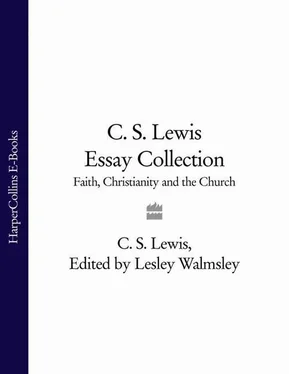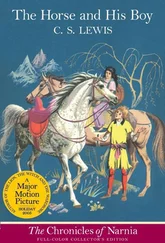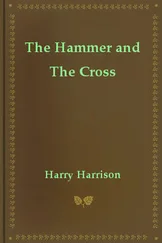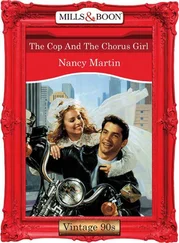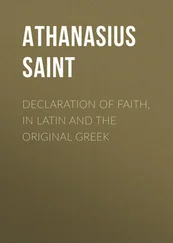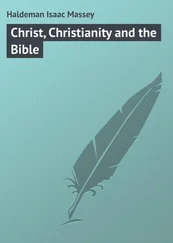C.S. Lewis
Essay Collection
Faith, Christianity and the Church
Edited By
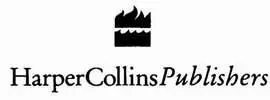
Cover Page
Title Page C.S. Lewis Essay Collection Faith, Christianity and the Church Edited By
INTRODUCTION INTRODUCTION Clive Staples Lewis was born in Belfast in 1898 and became a renowned scholar of medieval English, in which he lectured, first at Oxford and then at Cambridge. He also wrote widely on that subject, but as an author is now best known for his religious writings, including such books as Mere Christianity, The Screwtape Letters and The Chronicles of Narnia. He was also a prolific writer of essays on many subjects to do with faith and life, and although they have been published in various collections over the years, this present volume is the first time that they have all been brought together. To make for ease of reading I have tried to put them into logical sections, but in some cases an essay could happily fall into at least two, such was Lewis’s breadth of approach, and within each section the essays are generally listed chronologically. There is a short introductory history for each one, including details of the latest collection in which it has been published, and at the front of the book there is a list of titles, with publication dates, of all the books mentioned as sources. For all this background information, as for so much else to do with the works of C.S. Lewis, I am greatly indebted to Walter Hooper, whose C.S. Lewis–A Companion and Guide gives full details of all Lewis’s writings, including of course his essays. I have also largely kept the helpful footnotes which he added for those reading the essays many years after they were written. One small addition should be a note about The Guardian, which was a religious magazine rather than the national newspaper now known by that name. Lewis was writing over a long period, from the 1920s to shortly before his death in 1963, and the world has changed a great deal since then. For many people there is no firm religious background to life, and new mass communications have brought influences from all kinds of ideologies into our very homes, all presented with lavish and impressive marketing techniques, some of which we don’t even realize may be changing the way we think. When Lewis made the broadcasts which were to form Mere Christianity Britain was at war, and his words came as a firm foundation to people who were looking for a faith to steady their lives. In reading them again I was struck by how directly they still speak to us at the turn of the century, despite having been written in that very different world of some fifty years ago. Lesley Walmsley
BOOKS MENTIONED IN THIS VOLUME
[PART 1] THE SEARCH FOR GOD
[1] THE GRAND MIRACLE
[2] IS THEOLOGY POETRY?
[3] THE FUNERAL OF A GREAT MYTH
[4] GOD IN THE DOCK
[5] WHAT ARE WE TO MAKE OF JESUS CHRIST?
[6] THE WORLD’S LAST NIGHT
[7] IS THEISM IMPORTANT?
[8] THE SEEING EYE
[9] MUST OUR IMAGE OF GOD GO?
[PART 2] ASPECTS OF FAITH
[10] CHRISTIANITY AND CULTURE
[11] EVIL AND GOD
[12] THE WEIGHT OF GLORY
[13] MIRACLES
[14] DOGMA AND THE UNIVERSE
[15] ‘HORRID RED THINGS’
[16] RELIGION: REALITY OR SUBSTITUTE?
[17] MYTH BECAME FACT
[18] RELIGION AND SCIENCE
[19] CHRISTIAN APOLOGETICS
[20] WORK AND PRAYER
[21] RELIGION WITHOUT DOGMA?
[22] THE DECLINE OF RELIGION
[23] ON FORGIVENESS
[24] THE PAINS OF ANIMALS
[25] PETITIONARY PRAYER: A Problem Without an Answer
[26] ON OBSTINACY IN BELIEF
[27] WHAT CHRISTMAS MEANS TO ME
[28] THE PSALMS
[29] RELIGION AND ROCKETRY
[30] THE EFFICACY OF PRAYER
[31] FERN-SEED AND ELEPHANTS
[32] THE LANGUAGE OF RELIGION
[33] TRANSPOSITION
[PART 3] THE CHRISTIAN IN THE WORLD
[34] WHY I AM NOT A PACIFIST
[35] DANGERS OF NATIONAL REPENTANCE
[36] TWO WAYS WITH THE SELF
[37] MEDITATION ON THE THIRD COMMANDMENT
[38] ON ETHICS
[39] THREE KINDS OF MEN
[40] ANSWERS TO QUESTIONS ON CHRISTIANITY
[41] THE LAWS OF NATURE
[42] MEMBERSHIP
[43] THE SERMON AND THE LUNCH
[44] SCRAPS
[45] AFTER PRIGGERY – WHAT?
[46] MAN OR RABBIT?
[47] ‘THE TROUBLE WITH “X”…’
[48] ON LIVING IN AN ATOMIC AGE
[49] LILIES THAT FESTER
[50] GOOD WORK AND GOOD WORKS
[51] A SLIP OF THE TONGUE
[52] WE HAVE NO ‘RIGHT TO HAPPINESS’
[PART 4] THE CHURCH
[53] CHRISTIAN REUNION
[54] PRIESTESSES IN THE CHURCH?
[55] ON CHURCH MUSIC
[PART 5] LETTERS
[56] THE CONDITIONS FOR A JUST WAR
[57] THE CONFLICT IN ANGLICAN THEOLOGY
[58] MIRACLES
[59] MR C.S. LEWIS ON CHRISTIANITY
[60] A VILLAGE EXPERIENCE
[61] CORRESPONDENCE WITH AN ANGLICAN WHO DISLIKES HYMNS 1
[62] THE CHURCH’S LITURGY, INVOCATION, AND INVOCATION OF SAINTS
[63] THE HOLY NAME
[64] MERE CHRISTIANS
[65] CANONISATION
[66] PITTENGER-LEWIS AND VERSION VERNACULAR
[67] CAPITAL PUNISHMENT AND DEATH PENALTY
INDEX OF ESSAYS
ACKNOWLEDGEMENTS
About the Author
Other Books By
Praise
Copyright
About the Publisher
Clive Staples Lewis was born in Belfast in 1898 and became a renowned scholar of medieval English, in which he lectured, first at Oxford and then at Cambridge. He also wrote widely on that subject, but as an author is now best known for his religious writings, including such books as Mere Christianity, The Screwtape Letters and The Chronicles of Narnia.
He was also a prolific writer of essays on many subjects to do with faith and life, and although they have been published in various collections over the years, this present volume is the first time that they have all been brought together. To make for ease of reading I have tried to put them into logical sections, but in some cases an essay could happily fall into at least two, such was Lewis’s breadth of approach, and within each section the essays are generally listed chronologically. There is a short introductory history for each one, including details of the latest collection in which it has been published, and at the front of the book there is a list of titles, with publication dates, of all the books mentioned as sources.
For all this background information, as for so much else to do with the works of C.S. Lewis, I am greatly indebted to Walter Hooper, whose C.S. Lewis–A Companion and Guide gives full details of all Lewis’s writings, including of course his essays. I have also largely kept the helpful footnotes which he added for those reading the essays many years after they were written. One small addition should be a note about The Guardian, which was a religious magazine rather than the national newspaper now known by that name.
Lewis was writing over a long period, from the 1920s to shortly before his death in 1963, and the world has changed a great deal since then. For many people there is no firm religious background to life, and new mass communications have brought influences from all kinds of ideologies into our very homes, all presented with lavish and impressive marketing techniques, some of which we don’t even realize may be changing the way we think. When Lewis made the broadcasts which were to form Mere Christianity Britain was at war, and his words came as a firm foundation to people who were looking for a faith to steady their lives. In reading them again I was struck by how directly they still speak to us at the turn of the century, despite having been written in that very different world of some fifty years ago.
Читать дальше
